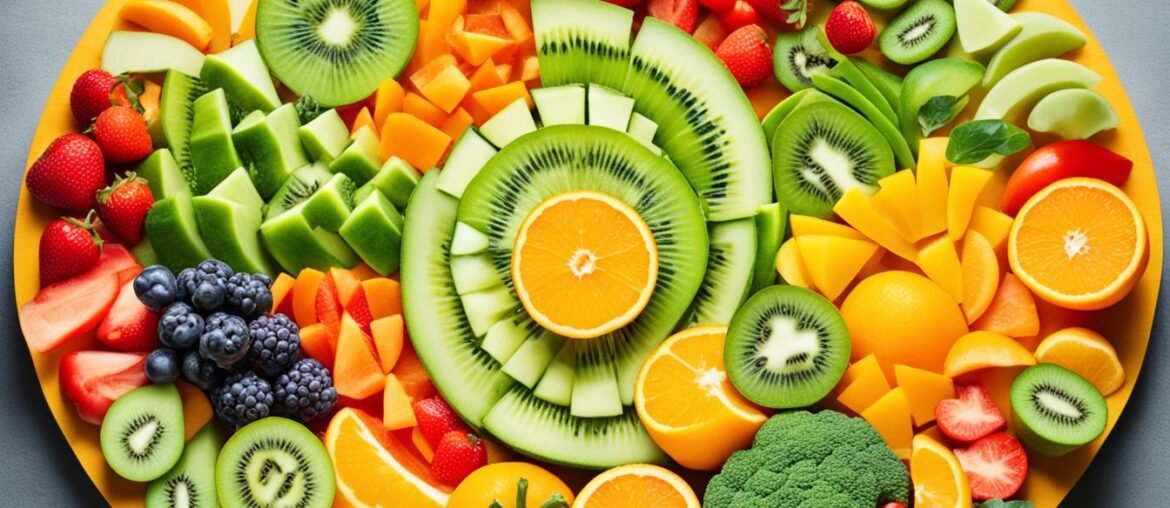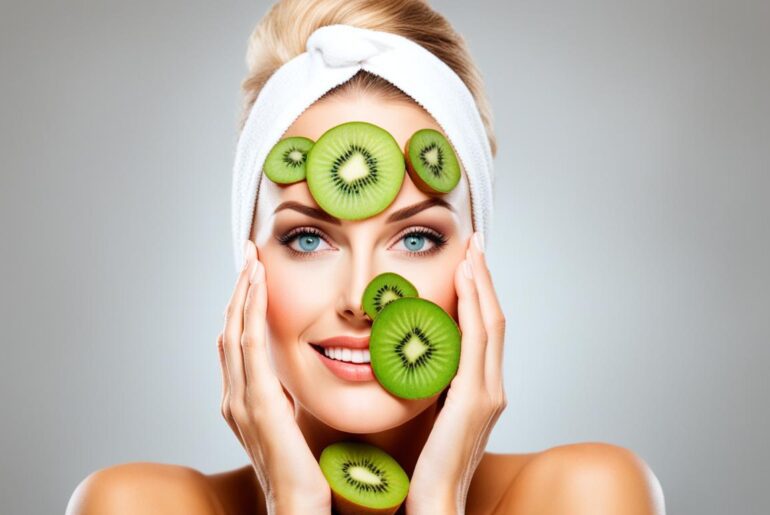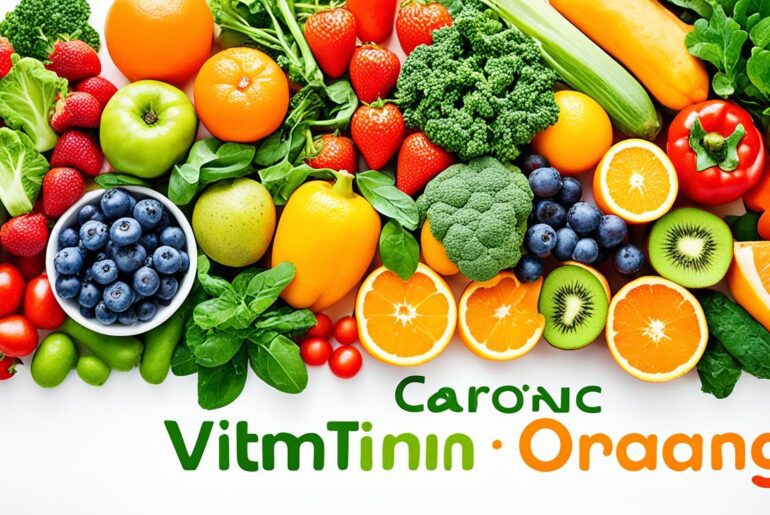Have you ever wondered what it takes to achieve healthy, radiant skin that can stand up to the daily stresses and damage it faces? While skincare products can certainly help, the key to truly nourishing your skin lies within. The answer may lie in a group of essential vitamins that are essential for skin repair and rejuvenation.
Your skin is a remarkable organ that functions as a protective barrier for your body. To keep it looking, working, and feeling its best, it needs the right balance of nutrients. These nutrients help maintain skin moisture, collagen production, and protect against sun damage and inflammation.
But which vitamins are crucial for optimal skin repair? How do they contribute to the healing process? And how can you incorporate them into your daily routine?
In this article, I will delve into the world of skin repair vitamins and unveil their remarkable benefits. From omega-3 fatty acids to antioxidant-rich vitamin C, you’ll discover the essential nutrients that can help your skin heal, rejuvenate, and thrive.
Key Takeaways:
- Omega-3 fatty acids, vitamin A, vitamin C, zinc, selenium, and vitamin D are essential vitamins and minerals for skin repair.
- These nutrients help maintain skin moisture, collagen production, and protect against sun damage and inflammation.
- Omega-3 fatty acids, found in fatty fish and flaxseeds, promote skin moisture and reduce inflammation.
- Vitamin A plays a crucial role in preventing sun damage and aiding in wound healing.
- Vitamin C is a powerful antioxidant that promotes collagen synthesis and reduces the appearance of dark spots.
Ready to unlock the secrets to vibrant and resilient skin? Let’s explore the power of vitamins for skin repair and revolutionize your skincare routine.
Omega-3 Fatty Acids for Skin Repair
Omega-3 fatty acids are vital for maintaining skin health and promoting skin repair and rejuvenation. These essential polyunsaturated fats cannot be produced by the body, making it necessary to obtain them from dietary sources. Omega-3 fatty acids play a crucial role in building cell walls, which helps to keep the skin moisturized, firm, and flexible.
Moreover, these fatty acids possess anti-inflammatory properties that can reduce skin irritation and inflammation, further aiding in the healing process. Including omega-3 fatty acids in your diet can support both the internal and external aspects of skin health, promoting a youthful and vibrant complexion.
Rich sources of omega-3 fatty acids include fatty fish like salmon, sardines, and tuna. These fish provide high levels of eicosapentaenoic acid (EPA) and docosahexaenoic acid (DHA), two types of omega-3s that offer exceptional skin benefits. Besides fish, you can also obtain omega-3s from plant-based sources such as flaxseeds and legumes.
| Food Source | Omega-3 Fatty Acid Content per Serving |
|---|---|
| Salmon (wild-caught, cooked) | 2.6 grams |
| Sardines (canned in oil) | 2.2 grams |
| Tuna (canned, light, in water) | 0.22 grams |
| Flaxseeds (whole, ground) | 2.4 grams |
| Legumes (such as kidney beans, chickpeas) | 0.2-0.4 grams |
By incorporating these omega-3 rich foods into your diet, you can provide your skin with the necessary building blocks for repair, rejuvenation, and overall skin health. Remember, a balanced and nutrient-rich diet is the key to maintaining healthy, radiant skin.
Vitamin A for Skin Repair
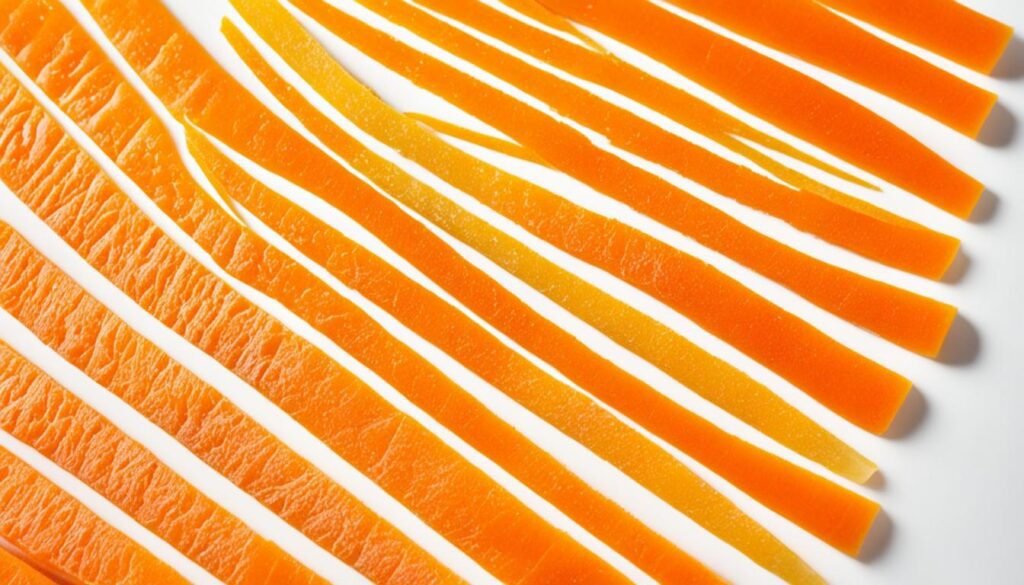
Vitamin A plays a vital role in maintaining and repairing the skin. It is essential for both the upper and lower layers of the skin, contributing to overall skin health, rejuvenation, and healing. This essential vitamin offers various benefits that promote skin repair and protection.
One of the key benefits of vitamin A is its ability to prevent sun damage. Sun exposure can lead to collagen breakdown, a protein responsible for the skin’s structure, leading to wrinkles, fine lines, and other signs of aging. Vitamin A interrupts this process, helping to maintain collagen production and preserve the skin’s firmness and elasticity.
In addition to sun damage prevention, vitamin A also aids in the healing of cuts and scrapes. It helps the oil glands around hair follicles function properly, promoting healthier skin and supporting the natural healing process. Vitamin A also has anti-inflammatory properties, reducing inflammation and redness associated with skin conditions.
When it comes to incorporating vitamin A into your diet, there are several good sources to consider. Leafy dark greens, such as spinach and kale, are rich in vitamin A. Eggs are another excellent source, providing a nutritious boost for skin health. Fortified foods, such as cereals and dairy products, can also be beneficial for increasing your vitamin A intake.
While vitamin A is essential for skin repair and health, it’s important to keep in mind that excessive intake can be toxic. Consulting with a healthcare professional before taking any vitamin A supplements is recommended to ensure safe and appropriate usage.
Vitamin C for Skin Repair
When it comes to skin repair and rejuvenation, vitamin C is a powerhouse nutrient that can work wonders for your skin. Acting as a potent antioxidant, vitamin C helps protect your skin against harmful free radicals that can damage cells and accelerate the aging process.
One of the key roles of vitamin C is its involvement in collagen synthesis. Collagen is a protein that gives your skin its strength and elasticity, and vitamin C plays a crucial role in its production. By supporting collagen synthesis, vitamin C helps maintain the integrity and firmness of your skin, keeping it youthful and resilient.
In addition to collagen synthesis, vitamin C has other remarkable benefits for your skin. It can help reduce the appearance of dark spots and hyperpigmentation, giving your skin a more even tone. Vitamin C also promotes skin healing, making it a valuable ingredient in products aimed at treating scars, blemishes, and wounds.
You can boost your vitamin C intake through your diet by incorporating foods rich in this essential nutrient. Citrus fruits like oranges and grapefruits, strawberries, and leafy greens are excellent sources of vitamin C. Alternatively, you can also consider using topical skincare products that contain vitamin C to directly nourish your skin.
To enhance the effectiveness of your sunscreen in protecting against UV damage, applying a vitamin C serum or cream before sun exposure can provide an additional layer of defense. Vitamin C has been shown to have photoprotective properties, helping to reduce the harmful effects of sun exposure on the skin.
Adding vitamin C to your skincare routine can contribute to healthier, more youthful-looking skin. Whether through dietary sources or topical applications, this essential nutrient plays a vital role in skin health, rejuvenation, and repair.
Benefits of Vitamin C for Skin Repair:
- Powerful antioxidant protection against free radicals
- Promotes collagen synthesis for stronger and more elastic skin
- Reduces the appearance of dark spots and hyperpigmentation
- Supports skin healing and regeneration
- Enhances the effectiveness of sunscreen in protecting against UV damage
| Vitamin C-Rich Foods | Amount of Vitamin C (per 100g) |
|---|---|
| Oranges | 53.2mg |
| Grapefruits | 31.2mg |
| Strawberries | 58.8mg |
| Kale | 41mg |
| Spinach | 28.1mg |
Zinc for Skin Repair
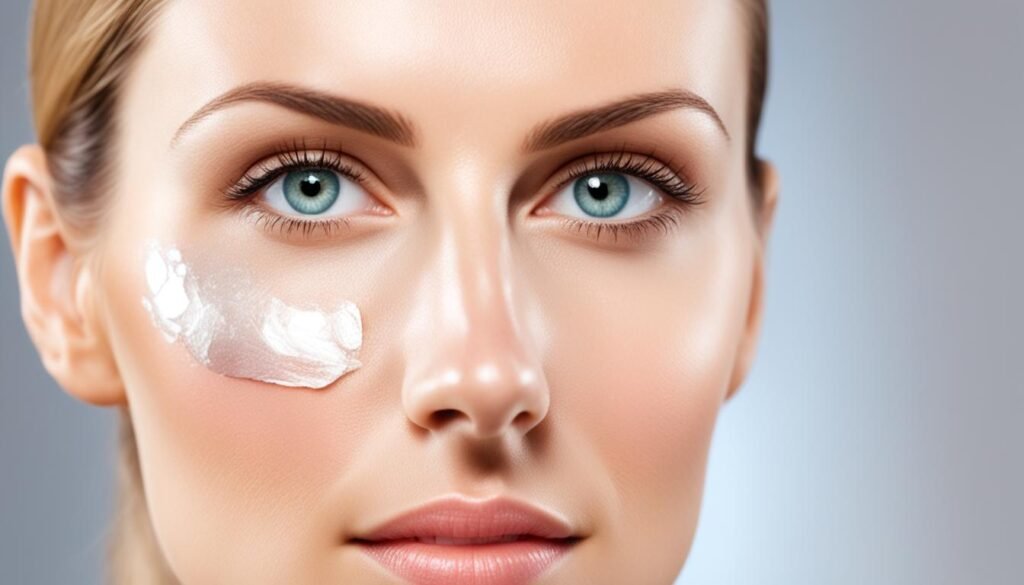
Zinc is a mineral that plays a crucial role in skin repair and healing. It supports wound healing by promoting cell division and providing the necessary building blocks for new tissue formation. Zinc also helps stabilize cell walls, protecting the skin from environmental stressors.
One of the key benefits of zinc is its potential to protect the skin from UV damage. It acts as a natural sunscreen, shielding the skin from harmful UV rays that can cause sunburn and premature aging. Additionally, zinc has anti-inflammatory properties that can reduce redness and inflammation, supporting overall skin health.
Ensuring an adequate intake of zinc is essential for maintaining optimal skin health. Zinc deficiency can manifest as eczema-like symptoms, including dryness, redness, and flakiness. To replenish zinc levels, incorporate foods rich in this essential mineral into your diet. Good sources of zinc include legumes, nuts, seeds, and avocados.
Zinc-Rich Foods for Skin Health
| Food | Zinc Content (per 100g) |
|---|---|
| Pumpkin seeds | 7.05mg |
| Sesame seeds | 7.75mg |
| Almonds | 3.17mg |
| Chickpeas | 1.53mg |
| Avocado | 0.64mg |
Incorporating these zinc-rich foods into your diet can help support skin repair, rejuvenation, and overall health. However, if you’re unable to meet your zinc needs through diet alone, consult with a healthcare professional to determine if zinc supplements are necessary.
Selenium for Skin Repair
When it comes to skin repair and protection, we often think of well-known antioxidants like vitamin C and vitamin E. However, there is another powerful mineral that works alongside these antioxidants to safeguard our skin from harmful UV rays: selenium. Selenium is an essential nutrient that is involved in various physiological processes, including those related to skin health.
Selenium acts as a key component of certain enzymes that play a crucial role in antioxidant defense. These enzymes help neutralize free radicals and prevent oxidative stress, a major contributor to skin aging and damage. By combating oxidative stress, selenium contributes to the overall health and rejuvenation of our skin.
But it doesn’t stop there. Multiple studies have shown that selenium may also help reduce the risk of skin cancer. Skin cancer, most commonly caused by excessive exposure to UV rays, is a growing concern worldwide. The protective effects of selenium, combined with its antioxidant properties, make it an important mineral for maintaining skin health and preventing skin cancer.
So, where can we find selenium? Luckily, it is naturally present in many fruits and vegetables, such as Brazil nuts, sunflower seeds, mushrooms, and broccoli. By incorporating these selenium-rich foods into our diet, we can ensure a sufficient intake of this vital mineral for optimal skin repair and protection.
“Selenium acts as a powerful antioxidant, neutralizing free radicals and protecting our skin from damage caused by UV rays.”
It’s important to note that while selenium is essential for skin health, excessive intake can be harmful. It is recommended to obtain selenium through a balanced diet rather than rely solely on supplementation. As always, consult with a healthcare professional for personalized advice on your nutrient needs.
In conclusion, selenium is a valuable mineral that contributes to skin repair, rejuvenation, and protection. Its antioxidant properties and role in preventing oxidative stress make it a key component in maintaining healthy skin. By incorporating selenium-rich foods into our diet, we can support optimal skin health and reduce the risk of skin cancer.
Vitamin D for Skin Repair
Vitamin D plays a crucial role in skin health and repair. It is primarily obtained through sunlight exposure, which helps the body produce this essential nutrient naturally. Vitamin D is not only important for skin rejuvenation but also for overall bone health.
Sunlight triggers the synthesis of vitamin D in the skin, and this process is vital for maintaining healthy skin cells. Adequate levels of vitamin D can help treat certain skin conditions like psoriasis, as it has been shown to have anti-inflammatory effects.
However, it is important to protect the skin from excessive sun exposure, which can lead to harmful effects such as sunburn and an increased risk of skin cancer. It is recommended to apply sunscreen with a high SPF and wear protective clothing when spending prolonged periods outdoors.
If you are considering vitamin D supplementation, it is advisable to consult with a healthcare professional. They can assess your individual needs and determine if supplementation is necessary.
Benefits of Vitamin D for Skin Repair:
- Promotes skin healing
- Supports skin rejuvenation
- Assists in treating certain skin conditions like psoriasis
- Essential for overall bone health
While sunlight is a natural source of vitamin D, it can be challenging to obtain sufficient levels through sunlight exposure alone, especially in regions with limited sun exposure or during the winter months. In such cases, a healthcare professional may recommend vitamin D supplements to ensure adequate levels of this essential nutrient.
Food Sources of Vitamin D
| Foods | Vitamin D Content (IU per serving) |
|---|---|
| Fatty fish (salmon, mackerel, sardines) | 400-1000 IU |
| Egg yolks | 41 IU |
| Fortified dairy products (milk, yogurt) | 100-124 IU |
| Fortified cereal | 40-50 IU |
| Mushrooms (exposed to UV light) | 400 IU |
Other Considerations for Skin Repair
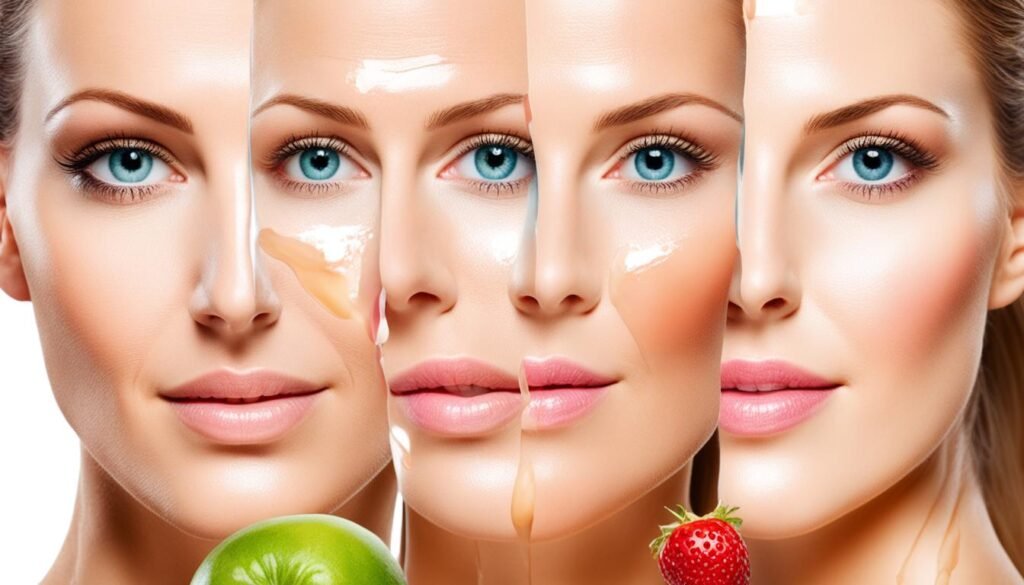
In addition to specific vitamins and minerals, maintaining a healthy skincare regimen and overall balanced diet are essential for skin repair and health. Skin repair relies on a holistic approach that encompasses various factors to promote skin rejuvenation and healing.
Skincare Regimen
A consistent skincare regimen is crucial for maintaining healthy skin. This includes cleansing, exfoliating, and moisturizing to remove impurities, promote cell turnover, and keep the skin hydrated. Incorporating products with active ingredients like retinol, hyaluronic acid, and antioxidants can further enhance the repair process.
Multivitamins and Topical Treatments
While a balanced diet is the best way to obtain essential nutrients, multivitamins can provide additional support for skin repair. Consult with a healthcare professional to ensure you’re taking the right supplements suitable for your specific needs. Additionally, topical treatments such as serums and creams containing ingredients like vitamin C, collagen, and peptides can target specific skin concerns and aid in the repair process.
Balanced Diet
A balanced diet rich in fruits, vegetables, whole grains, lean proteins, and healthy fats can provide the necessary nutrients for skin repair. Nutrients like vitamins A, C, and E, as well as minerals like zinc and selenium, play key roles in promoting skin health and healing. Including a variety of foods in your diet ensures a diverse range of nutrients.
Sun Protection
Protecting your skin from harmful UV rays is crucial for both preventing future damage and aiding in skin repair. Use a broad-spectrum sunscreen with SPF 30 or higher every day, and reapply it every two hours when exposed to the sun. Wearing protective clothing, hats, and sunglasses can also minimize sun damage.
Stress Reduction
Stress can have detrimental effects on the skin, compromising its barrier function and impeding the repair process. Incorporating stress reduction techniques, such as exercise, meditation, and hobbies, can improve overall skin health. Getting enough sleep is also essential, as it allows the skin to regenerate and repair overnight.
Incorporating these considerations into your daily routine can significantly contribute to skin repair and overall skin health. Remember to consult with a healthcare professional for personalized advice and recommendations that align with your unique needs and conditions.
Conclusion
Proper nutrition and vitamin intake are essential for maintaining healthy and vibrant skin. When it comes to skin repair and rejuvenation, certain vitamins play a crucial role. Omega-3 fatty acids, vitamin A, vitamin C, zinc, selenium, and vitamin D are all key nutrients that contribute to skin health and healing.
A balanced diet that includes a variety of fruits, vegetables, and lean proteins can provide the necessary vitamins and minerals for skin repair. Additionally, incorporating a skincare regimen that includes sunscreen and moisturization is important for protecting the skin from sun damage and maintaining its health.
While supplements can be beneficial for individuals with specific deficiencies, it is important to consult with a healthcare professional before starting any new supplements. They can provide personalized advice and recommendations based on your specific needs and goals.
By nourishing your skin from the inside out with the right vitamins and nutrients, and by following a consistent skincare routine, you can support the repair and regeneration of your skin, helping it to stay healthy, radiant, and resilient.
FAQ
Why are vitamins essential for skin repair?
Vitamins play a crucial role in maintaining skin health and promoting its repair. They help in collagen production, protect against sun damage, reduce inflammation, and keep the skin moisturized and firm.
What are omega-3 fatty acids, and how do they contribute to skin repair?
Omega-3 fatty acids are essential nutrients that help keep the skin moist, firm, and flexible. They also possess anti-inflammatory properties that can reduce skin irritation and inflammation. Sources of omega-3 fatty acids include fatty fish, flaxseeds, and legumes.
How does vitamin A contribute to skin repair?
Vitamin A helps prevent sun damage by interrupting the process that breaks down collagen, a protein responsible for the skin’s structure. It also aids in the healing of cuts and scrapes and helps the oil glands function properly. Good sources of vitamin A include leafy dark greens, eggs, and fortified foods.
What role does vitamin C play in skin repair?
Vitamin C is a powerful antioxidant that protects the skin against free radicals, promotes collagen synthesis, reduces the appearance of dark spots, and enhances skin healing. Citrus fruits, strawberries, and leafy greens are excellent sources of vitamin C.
How does zinc contribute to skin repair?
Zinc aids in wound healing, supports cell division, stabilizes cell walls, and may protect the skin from UV damage. Legumes, nuts, seeds, and avocados are good sources of zinc.
What is the role of selenium in skin repair?
Selenium works alongside antioxidants to protect the skin from UV rays, reducing the risk of skin cancer. Fruits and vegetables are generally good sources of selenium.
How does vitamin D contribute to skin repair?
Vitamin D, primarily obtained through sunlight exposure, plays a crucial role in skin health and may help treat certain skin conditions like psoriasis. It’s also essential for overall bone health.
What are some other considerations for skin repair?
In addition to specific vitamins and minerals, maintaining a healthy skincare regimen and balanced diet are important for skin repair and health. Using sunscreen daily, moisturizing the skin, avoiding exposure to environmental toxins and pollutants, managing stress levels, and getting enough sleep all contribute to healthy skin.
Are supplements necessary for skin repair?
While supplements can be beneficial for certain individuals with deficiencies, it’s important to consult with a healthcare professional before starting any new supplements. A balanced diet and skincare regimen are usually sufficient for maintaining skin health.
Why is it important to consult with a healthcare professional?
Consulting with a healthcare professional is crucial to ensure that any supplements or treatments are appropriate and safe for your specific needs. They can provide personalized advice based on your medical history and current health status.

